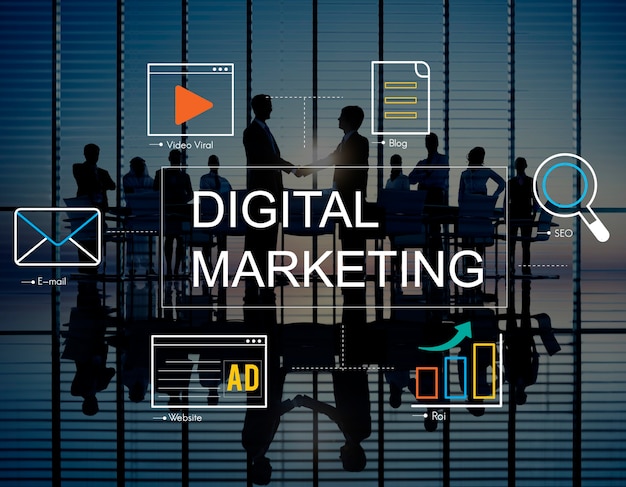Both for an individual and a brand, reputation is important!
Every business owner is aware of the value of a solid reputation. A company can indeed distinguish itself from rivals and boost sales with a solid reputation. Nike is a good example. People prefer Nike because of its reputation even though there are several sporting companies and many pairs of shoes available for less money.
It all comes down to reputation! People trust a brand that has a good reputation, which affects their choice.
Reputation Management:
Similar to a person's reputation, a brand's reputation is determined by how stakeholders, clients, and the general public perceive it. This also takes into account their influence, ambitions, and quality. Contrary to common assumptions, keeping a brand involves more than just managing crises and responding to unfavorable comments and feedback on social media. It involves more than just addressing client grievances and unfavorable opinions of the business.
Reputation marketing:
Online reputation marketing promotes and keeps track of user-generated content and customer reviews. These include articles, comments on social media, the press, posts on internet forums, etc. It is easier to do this if you want to know what others are saying about your company, what your customers want, and how to make your goods and services more effective at meeting their demands.
Customer acquisition or retention today heavily relies on online reputation marketing. More and more companies are taking customer feedback and reviews seriously. To achieve long-term success and growth, businesses are putting numerous online reputation marketing strategies into practice.
Does Online Reputation Marketing impact Digital Marketing?
Anything that is online affects reputation and hinders digital marketing efforts. People evaluate a brand based on what they discover on Google. When people look up your brand, they express a variety of emotions. The success of the brand is greatly hampered by a poor presence or absence.
How to identify your online reputation?
It's necessary to assess your existing situation before you start improvising. The methods listed below can be used to gauge your online reputation:
The first place a customer looks to learn about your company is Google. So, be sure to portray yourself professionally. To find your brand's reputation on Google, look for the following terms.
Are you positioned in the first five listings?
Are you being portrayed as a leader or industry expert?
Are the visible links positive?
Are there any ORM issues that need to be addressed immediately?
Check your Google My Business Account
If you don't have an existing one, make one.
If you have an existing one, make sure that all the given information is accurate.
Social
Before making a purchase or visiting, every other customer chooses to have a quick look at your social media sites and website. ensuring that your social media accounts are speaking on your behalf.
How many followers do you have?
What is the frequency of posting?
Do you respond to comments and messages?
What is your average response time?
Does your post reflect your brand message?
Search hashtags and locations on your social media platforms. Make sure to utilize the same brand name and logo everywhere. Keep a watch out for critical remarks and check to see if other followers are jumping to defend you.
Reviews
Check if your Google reviews, if any, are received. Look for the average ratings you receive.
Check out your social media reviews. Check your response to them.
Check for comparison sites by third-party companies and try to analyze your rank.
Why is Online Reputation Marketing Important?
Potential customers notice the content there when they conduct an online search for your brand. This has a significant impact on how customers perceive your brand, so creating a positive first impression is vital.
Depending on the sector and the company, different online reputation marketing tactics are used, but all of them have some universally applicable fundamentals. A brand benefits from effective online reputation marketing in the following ways:
Build Strong Customer Loyalty:
The impact of internet reviews on a new visitor's buying choice is one of the main reasons to work on your online reputation. Even without search engine assistance, they are open to reviews. Therefore, businesses must view consumer feedback as a priceless resource that can influence their online reputation and support revenue growth.
Achieve Better Conversion:
Online reviews and sales conversions are directly correlated. Any company wants to make money, and having the best plan for managing your internet reputation may help you do that.
Increasing Search Engine Visibility:
When someone wants to look up your brand, they go to Google because it dominates practically all international searches. Therefore, increasing the number of favorable evaluations won't suffice to optimize online reputation management. It is more crucial to optimize them so that they show up on the first page of search engine results.
Common Mistakes Made in Reputation Marketing
Relying only on purchased material is the most frequent error in reputation marketing. A well-thought-out reputation marketing approach would be the ideal blend of paid and organic content. However, the organic method should receive greater attention and resources. Even though it could sound alluring to buy phony reviews or entice clients to submit evaluations, doing so usually results in a negligible return on investment. Instead, spend money on press releases to reach a wider audience when you introduce a new product, make a significant change, or receive substantial recognition. In this manner, you can use organic efforts to gain the recognition of more prospective clients to support a paid reputation marketing approach.







